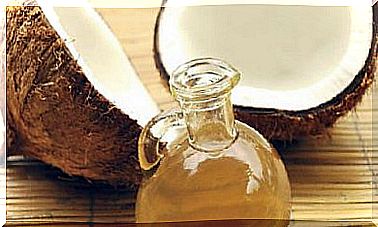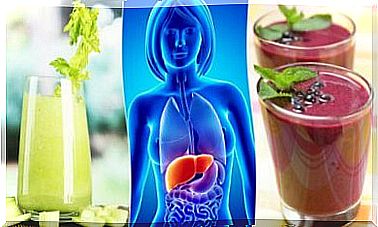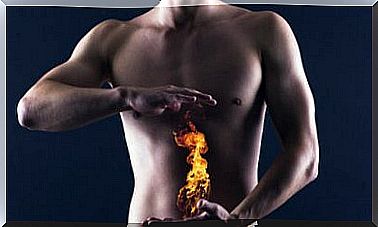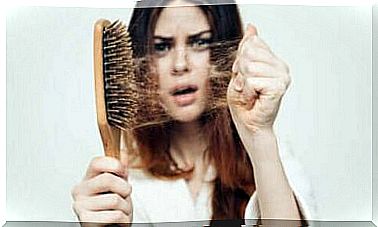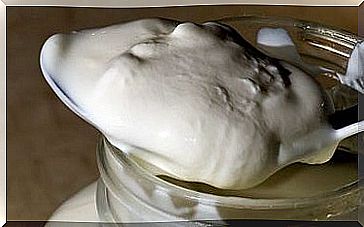Palpitations: Why They Arise And How To Treat Them
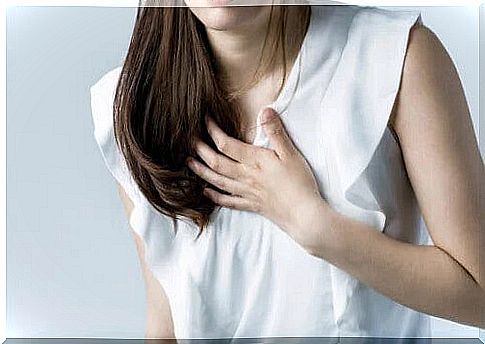
Heart palpitations are very common. And while they don’t usually get much attention, for some people it’s a really unpleasant feeling that causes concern.
However, experiencing them does not necessarily mean that you have a serious health problem. In fact, the feeling of rapid heartbeat is not usually due to heart disease. However, we have to be careful. In this article, we’ll tell you more about that.
Remember that if you experience palpitations and other discomforts too often, you should see your doctor for a general evaluation. That way, you can determine what’s going on and how to handle the problem properly.
What should we know about palpitations?
As we’ve mentioned before, having palpitations is not always a bad thing, and this is confirmed by Drs Thompson and Shea. Some people find them unpleasant and worrisome, but they rarely indicate a potentially deadly heart disorder. Many people without heart disease also experience palpitations at occasional times.
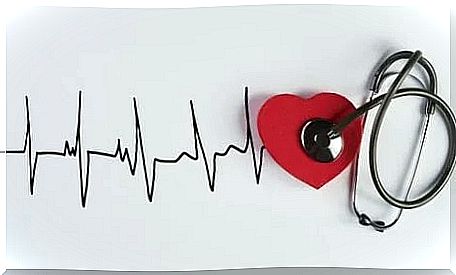
On the other hand, doctors comment that sometimes people can feel their heartbeat faster or faster than normal, and this can be caused by several reasons, including:
- Anemia.
- Fever.
- Exercises.
- Arrhythmias.
- Dehydration.
- Arterial hypotension.
They can also be caused by issues such as :
- Excessive coffee consumption.
- Drug and alcohol consumption.
- Anxiety, stress, fear, among other intense emotional states.
It must be understood that, in principle, palpitations are a consequence of the release of adrenaline. For this reason, it is normal for them to appear when we are faced with a situation of fear or a lot of emotion.
Other causes such as a panic attack or the presence of imminent danger are also common . In some people with hyperthyroidism, palpitations are recurrent.
Are palpitations dangerous?
Palpitations are not a sign of health risk when they happen once in a while, or in very specific situations, such as after exercising. However, when it occurs regularly and becomes more and more uncomfortable, it is time to seek a doctor for a general evaluation.
It is important to determine the frequency of episodes and assess whether the frequency is increasing, or analyze in which situations they occur regularly and not as an exception, etc.
Some of the discomforts that can accompany palpitations are: dizziness, nausea, tiredness, cold sweat, weakness, difficulty breathing, feeling short of breath, feeling that the heart is beating too hard, chest pain and, in more acute cases , fainting.
How to avoid palpitations?

Good habits or the way we deal with problems and different situations in life can minimize palpitations. Some of the advice to reduce or prevent them are:
- Do not smoke.
- Eat healthy.
- Stop drinking alcohol.
- Moderate your coffee consumption.
- Perform low-intensity exercises daily.
- Lower stress or anxiety levels through relaxation techniques such as yoga or deep breathing.
It’s also convenient:
- Analyze the medications you are taking.
- Evaluate family history of heart disease, high blood pressure or stroke.
What to do with an episode of palpitations caused by stress?
As soon as your heart rate starts to become erratic, sit down and place your feet on the floor. The next step will be to breathe slowly and deeply so that your abdomen expands each time air enters your lungs. In this way, the beats gradually return to normal.
Of course, it is also recommended to remain calm and not panic. Other useful techniques can be as follows:
Valsalva maneuver
It consists of covering the nose, closing the mouth and exhaling, even when it is impossible to exhale in either place. This will increase the pressure in the chest and allow the heart rhythm to recover. This practice is supported by an article published in the journal SEMERGEN.
To cough
This procedure is also believed to serve to increase pressure in the chest. It is sometimes used in people with pre-infarction symptoms, and some say it is very good at decreasing palpitations. However, this type of maneuver is not supported by doctors.
drink cold water

Those who believe in the effectiveness of this technique say that when the esophagus receives cold water, it exerts greater pressure on the heart. There are also people who wet their face with ice water. However, no scientific evidence was found that these actions are effective or innocuous in relation to palpitations.
Do not forget…
Before concluding, it is important to highlight that frequent palpitations should always be analyzed by a doctor, so that he can determine the causes that trigger them and what would be the most appropriate treatment.

